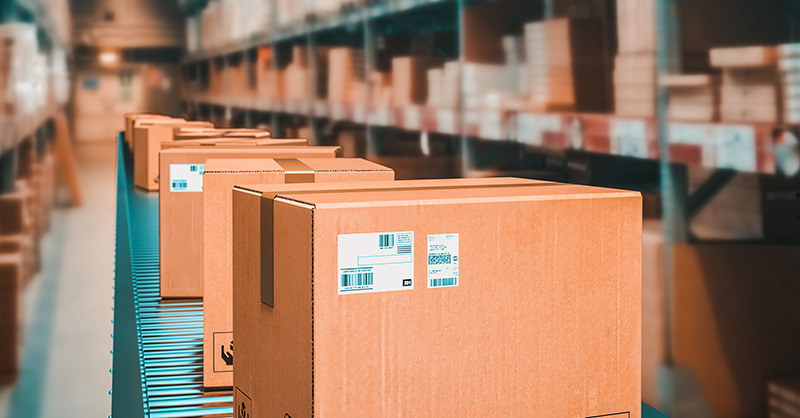Japanese companies reviewing supply chains, amid rising US-China trade tensions
10 April 2023 03:15 by Sachiko Sakamaki

After building global supply chains over the past several decades, many Japanese companies are now reviewing and realigning them, as new trade restrictions pop up amid rising tensions between the US and China.
The confrontation between Japan’s US ally, which is its second-largest trading partner, and China, its largest trading partner, is creating a dilemma for many Japanese businesses, especially those that conduct business in both countries.
Following US export controls intended to restrict China’s ability to produce high-end semiconductors, Tokyo recently disclosed a plan to restrict exports of 23 items necessary to make high-end semiconductors
Japan has begun implementing its Economic Security Promotion Act, enacted last May, to ensure the stable supply of key items, and to ensure the cybersecurity of infrastructure providers. It designated 11 items including semiconductors, permanent magnets, robots, and rare earth minerals as key.
China has also introduced export control measures, as well as laws to block the extraterritorial reach of foreign laws and to resist sanctions by foreign governments.
These regulatory moves have forced Japanese companies to review their supply chains, production facilities and trading partners, and some have started shifting productions away from China and other risky regions to Japan and elsewhere, said trade experts.
“Given the broadening and detailed scrutiny over items that have economic-security implications, many companies are reviewing the supply chains they had built over the past decades, in some cases fundamentally. This is enormous work,” said Kaoru Hattori, a lawyer experienced in trade and antitrust at Nagashima, Ohno & Tomotsune.
Diversifying supply chains
Economic security is now one of the hottest regulatory topics among Japanese companies, as demonstrated by a recent webinar by the Japan External Trade Organization, or JETRO, which attracted a large audience of some 1,800 and many questions.
According to a JETRO survey published last November — in which 75 percent of companies said they had business both in the US and China — two thirds said they were beefing up information gathering on the economic-security situation; 23 percent were working on supply-chain diversification; 22 percent had set up a special section or responsible official to deal with the issue; and 21 percent had prepared a business-continuity plan.
Some survey respondents expressed concern that decoupling from China could benefit a third party, but 13 percent had shifted or were considering shifting some overseas facilities back to Japan, for reasons such as rising business costs and economic-security risks.
“Trade restriction rules are changing rapidly, and the scope of high-tech items with dual civilian and military applications to be restricted is broadening, a new element different from the Cold War era. Japanese corporate leaders must consider geopolitical risks in their strategic decision-making to minimize their compliance and reputational risks,” said Kyohei Yabu, research manager at JETRO’s Research & Analysis Department.
Economic security office
Canon was one of the first companies to set up an economic-security office in January 2022, to make integrated and consistent policy decisions. The office involves the company’s legal, compliance, sales, procurement and other divisions.
The office has been collecting information about regulatory trends around the world, analyzing them from macro and micro perspectives, and reviewing the company’s supply chains. It has also been deeply involved in discussions to close most of its operations in Russia, soon after it invaded Ukraine.
“We have diversified our supply chains to reduce our dependency on some particular countries, and are continuously reviewing them,” said Kenichi Nagasawa, a member of the government’s economic-security panel. He was the chief of Canon’s Economic Security Office until the end of March.
As a global supplier of imaging devices, printing devices, medical systems and industrial equipment, including semiconductor-related devices, Canon last year generated roughly one fifth of its revenues from Japan, slightly more from Asia and Oceania, a bit more than a quarter from the EU, and about 30 percent from the US.
Nagasawa said that his section had to assess financial costs, regulatory and reputational risks and other elements in deciding what to do with business operations and transactions with counterparties that could pose risks and concerns.
Chinese market
According to a study by Japan’s Cabinet Secretariat, which analyzed imported items whose majority of volumes was supplied by China, the US, Germany and Japan all depended on China more than any other trading partner. But Japan’s dependency was particularly pronounced, with 24 percent of items compared with 11 percent for the US and 5 percent for Germany in 2020.
Together with the fact that Japan has built interdependence with its giant Asian neighbor, which has more than 10 times Japan’s declining population, trade experts said that complete decoupling from China is unrealistic.
“Withdrawing from the Chinese market wouldn’t be a strategic decision for many Japanese companies, but some degree of decoupling, especially with regard to advanced technologies, is likely to happen. And reducing dependency on China is necessary,” said Hideyuki Miura, associate professor of international relations at Kyorin University.
With global rivals likely to take over business after they leave the Chinese market, Japanese companies and their peers in Europe and South Korea will have to find “gray areas” to secure revenues while in compliance with new trade rules, he added.
Canon’s Nagasawa also said that many Japanese businesses will continue their China operations in order to serve consumers in the Chinese market.
Related Articles
No results found
